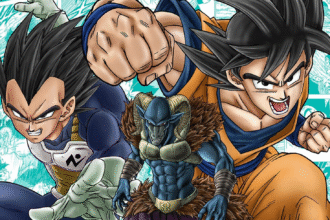The world of anime often paints vivid stories that evolve and grow alongside their characters. One of the most beloved series in this realm is Naruto, which not only captivated audiences with its dynamic storytelling but also provided deep character development over the years. As fans transitioned to the sequel series, Boruto: Naruto Next Generations, a pressing question arose: How old is Naruto in Boruto, and what does his age signify in the broader narrative?
A Quick Recap of Naruto‘s Timeline
In the original Naruto series, Naruto Uzumaki is introduced as a 12-year-old ninja with dreams of becoming the Hokage, the leader of his village, Konohagakure. The series chronicles his growth, friendships, and the trials he faces, culminating in the climax of the Shippuden arc where he emerges as a formidable ninja.
By the end of Naruto: Shippuden, which concludes around the Fourth Great Ninja War, Naruto is approximately 17 years old. The timeline from his childhood to teenage years is tumultuous, filled with battles and personal growth that shape him into the hero he becomes.
The Beginning of Boruto
Boruto: Naruto Next Generations takes place several years after the end of Shippuden. To provide a clearer context, Naruto is officially the Seventh Hokage at this point, having achieved his ultimate goal. As the series shows, he is married to Hinata Hyuga, and they have two children: Boruto and Himawari.
When Boruto begins, Naruto is 32 years old, marking a significant transition from the youthful shinobi we once knew. The series depicts how he balances his responsibilities as Hokage with his roles as a father and husband, showcasing the complexities of leadership and family life.
Themes of Growth and Responsibility
Naruto‘s age in Boruto is not merely a number; it symbolizes the maturation of not just the character but also the themes of the series. While he once struggled for recognition and acceptance, this new stage in his life introduces challenges of a different kind. Naruto faces the weight of leadership and the expectations of a village that looks up to him for guidance and protection.
Moreover, this age difference highlights the generational shift between Naruto and Boruto. While Boruto grapples with his own identity and the shadow of his father’s legacy, Naruto embodies the transition from youthful ambition to adult responsibilities. This relationship brings forth themes of familial expectations, communication, and the evolving nature of relationships between parents and children.
The Impact of Age in the Story
In Boruto, Naruto‘s age also allows for deeper storytelling. With 32 years of experience, Naruto brings wisdom and strategic thinking that contrasts with the impulsiveness of younger characters. His evolution from a brash, determined child to a thoughtful leader provides rich narrative layers, enabling viewers to witness the challenges of a seasoned ninja adjusting to a new era filled with advanced technologies and methods.
Additionally, Naruto‘s friendships with older characters, like Sasuke, and younger shinobi, like Sarada and Mitsuki, illustrate the continuity of camaraderie and mentorship within the series. These relationships highlight the importance of bonds across generations, showcasing how experiences frame one’s perspective and approach to conflicts.
Conclusion
Naruto‘s journey from a 12-year-old ninja to a 32-year-old Hokage is a testament to his character’s development and the show’s overarching themes of growth, legacy, and responsibility. As we explore Boruto: Naruto Next Generations, we delve into not just the adventures of the new generation but also the deeper reflections on how time and age shape our heroes. Naruto‘s age serves as a poignant reminder of the passage of time and the evolution of goals, relationships, and responsibilities in the ever-expanding world of ninja.








